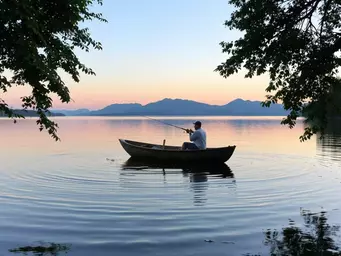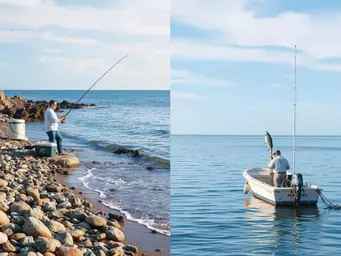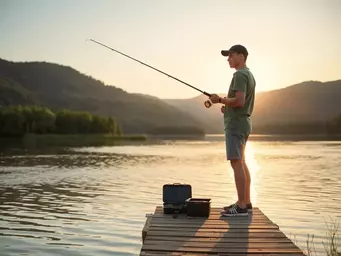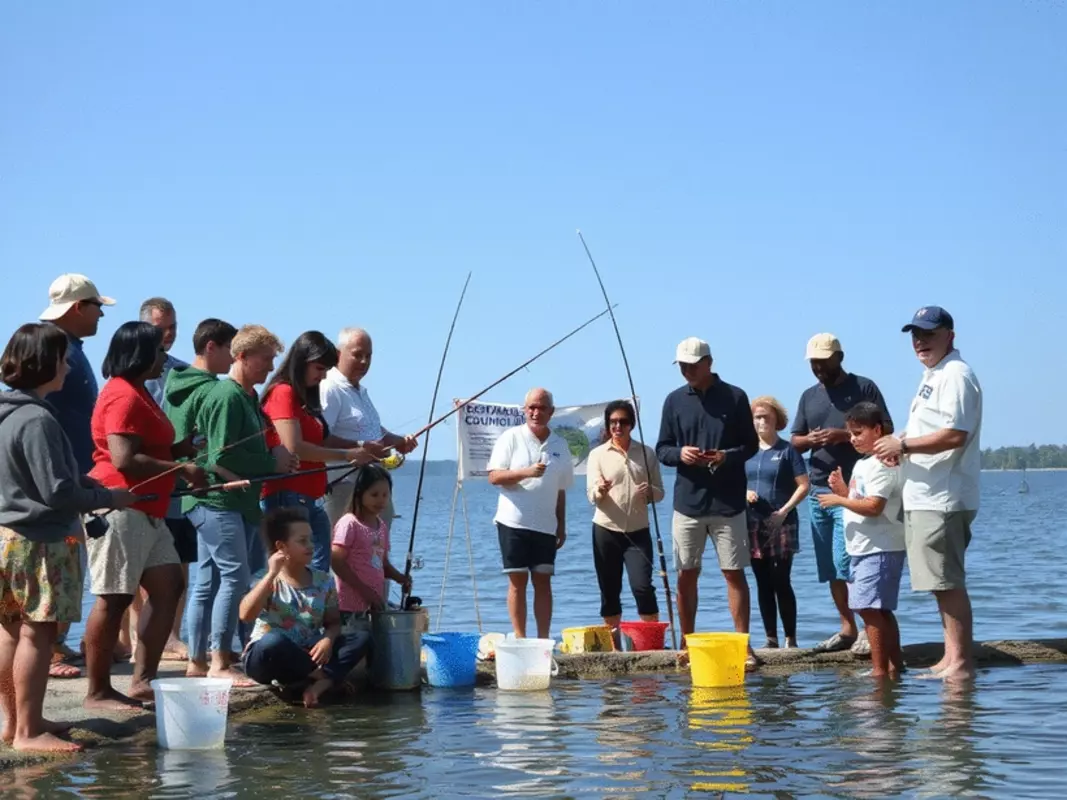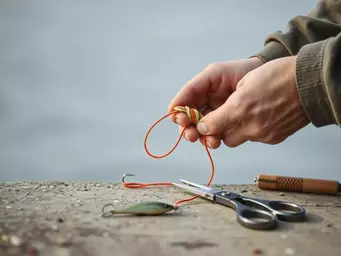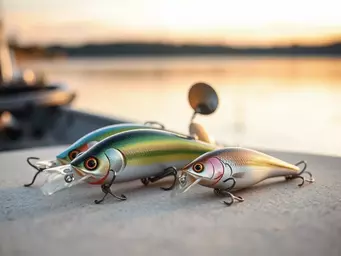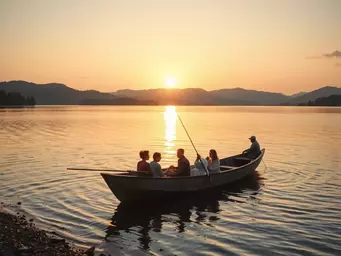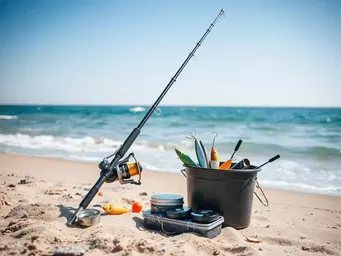Fishing Techniques for Beginners
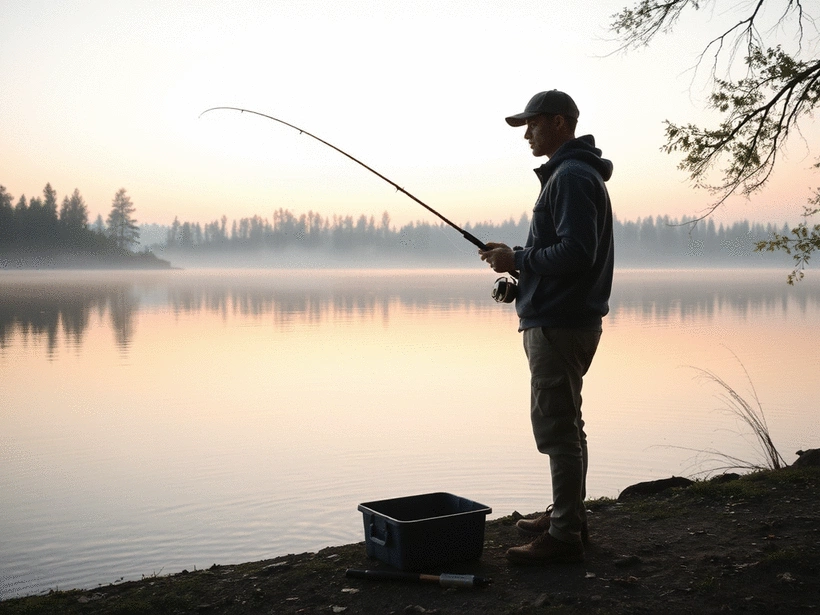
Fishing is not just about the catch; it’s a journey filled with learning and connection. By understanding the basics, you can transform every outing on the water into a rewarding experience. Here’s what you’ll discover in this essential guide for beginner anglers.
What You Will Learn
- Key fishing concepts, including catch and release practices.
- Essential gear needed for your first fishing trip.
- Basic fishing techniques and how to read water effectively.
- Information on local fishing spots and regulations.
- The importance of connecting with the fishing community for shared insights.
- Advice on choosing between live bait and artificial lures.
Beginner Angler's Essential Gear Overview
This visual outlines the core equipment categories and options for new anglers, comparing choices for rods, reels, and bait types.
Rods & Reels: Beginner vs. Experienced
Beginner:
Spinning Rods (6-7ft) & Reel Combo
Experienced:
Baitcasting Rods (Precision)
Bait: Live vs. Artificial Lures
Live Bait:
Worms, Minnows, Shrimp (Effective attractor)
Artificial Lures:
Versatile, Reusable (Various shapes & colors)
Understanding Fishing Basics for First-Time Anglers
Welcome to your journey into the world of fishing! At Addict Fishing, we understand that stepping into this exciting hobby can feel overwhelming. That's why I've created this beginner's fishing guide to provide you with essential information and tips to make your first experiences on the water enjoyable and successful.
Whether you dream of reeling in your first catch or simply enjoying a peaceful day by the lake, this guide will help you navigate the basics. I’m passionate about sharing my love for fishing, and I hope to inspire you to dive into this adventure with confidence!
The Purpose of This Beginner’s Fishing Guide
This guide is designed to equip you with the foundational knowledge you need to get started. You'll learn about essential gear, fishing techniques, and how to read water like a pro. By the end, you'll be ready to embark on your fishing adventures!
- Understand key fishing concepts
- Identify necessary fishing gear
- Master basic fishing techniques
- Discover local fishing spots and regulations
With this roadmap in hand, you’ll be well-prepared for your first fishing trip. Remember, every angler started somewhere, so embrace the learning process!
Key Fishing Concepts Every Beginner Should Know
Before you head out, it's important to grasp a few fundamental fishing concepts. First, catch and release practices are vital for preserving fish populations. Understanding how to handle fish properly ensures they can thrive after they are released back into the water.
Additionally, familiarize yourself with the different types of fishing environments: freshwater and saltwater. Knowing where you're fishing helps determine the species you might encounter and the gear you'll need. Don't hesitate to ask fellow anglers for tips—building connections can enhance your fishing experience!

Essential Fishing Gear: What Beginners Need
Now that you understand the basics, let’s dive into the essential fishing gear you’ll need as a beginner. Having the right equipment can make all the difference in your fishing success. Here’s a quick overview of what you’ll want to have in your kit:
- Fishing rod and reel
- Fishing line
- Hooks
- Sinkers and bobbers
- A tackle box for organization
With these items in hand, you’ll be ready for a variety of fishing situations. Let’s break down each component to ensure you make informed choices.
Overview of Basic Fishing Equipment: Rods, Reels, and Lines
First up, your fishing rod and reel. A spinning rod and reel combo is an excellent choice for beginners, as it’s versatile and easy to use. When selecting a rod, aim for one that’s around 6 to 7 feet long, which offers a good balance between casting distance and control.
- Spinning Rods: Great for beginners; easy to handle
- Baitcasting Rods: Better for experienced anglers; offers precision
- Fishing Lines: Mono, braided, or fluorocarbon—choose based on your target species
Having the right fishing line is equally important. Each type of line has its strengths, so consider the conditions in which you'll be fishing. Don't hesitate to consult local tackle shops for recommendations, and remember to check out these fishing tips and videos for more guidance!
Understanding Fishing Hooks, Sinkers, and Bobbers
Next, let’s talk about hooks, sinkers, and bobbers. Understanding their roles can significantly enhance your fishing technique. Here’s how each component works:
- Fishing Hooks: Used to catch the fish—various sizes and shapes exist based on the species
- Sinkers: Help your bait sink to the desired depth
- Bobbers: Indicate when a fish bites; they float on the water surface
Choosing the right hook size is crucial, as it must match the bait and fish species. I recommend starting with a selection of sizes to see what works best for you!
Choosing the Right Fishing Rod and Reel Types
When it comes to selecting a fishing rod and reel, consider your target species and fishing environment. A medium-action spinning rod is typically a safe bet for beginners, as it’s adaptable for various fishing scenarios. Pair it with a spinning reel that has a smooth drag system for better control.
Recommendations for Beginner Fishing Gear
If you’re unsure where to start, here’s a simple list of recommended beginner gear:
- 6’6” medium-action spinning rod
- Spinning reel size 2500
- 12-15 lb monofilament fishing line
- Assortment of hooks (sizes 6 to 10)
- Lightweight sinkers and bobbers
This gear will give you a solid foundation for your fishing adventures!
The Importance of a Tackle Box for Organizing Gear
Investing in a tackle box is essential for keeping your gear organized. A well-maintained tackle box not only saves time but also helps you quickly access what you need on the water. Plus, it’s a great way to store extra tackle and bait.
Understanding Bait: Live Bait vs. Artificial Lures
Lastly, let’s chat about bait. You generally have two options: live bait or artificial lures. Each has its benefits:
- Live Bait: Effective for attracting fish; can be worms, minnows, or shrimp
- Artificial Lures: Versatile and reusable; come in various shapes and colors
Many anglers find success using both types, so don’t be afraid to experiment to see what works best for you!
We Want to Hear From You!
What aspect of fishing are you most excited to learn about? Share your thoughts below:
Frequently Asked Questions for Beginner Anglers
Summarizing Key Takeaways for New Anglers
As we wrap up this guide for new anglers, it's essential to reflect on the key takeaways that will enhance your fishing experiences. First and foremost, understanding the basics of fishing, including gear selection, techniques, and fish behavior, sets the foundation for your adventures. Remember, the more you practice, the more confident you'll become!
- Familiarize yourself with different types of fishing gear and equipment.
- Practice casting techniques and knot tying until you feel comfortable.
- Stay informed about local regulations and fishing spots.
- Engage with the fishing community for shared insights and camaraderie.
Each trip to the water is an opportunity to learn and grow as an angler. Embrace the journey, and don't hesitate to ask for help or advice from more experienced fishermen. Your adventures are just beginning!
Encouraging Continued Learning and Practice
Fishing is a lifelong learning experience! As you continue your journey, consider setting personal goals to enhance your skills. Whether it’s trying new fishing techniques or targeting different species, the key is to keep pushing yourself to learn more. I often remind myself that every day on the water presents a chance to discover something new.
- Sign up for local fishing classes or workshops.
- Join fishing clubs or groups to connect with fellow anglers.
- Read books and articles to dive deeper into fishing techniques.
- Participate in fishing tournaments or events to gain experience.
Every cast can teach you something valuable, so stay patient and keep practicing! The fishing community is rich with knowledge waiting for you to tap into.

Next Steps for Excelling in Fishing Techniques
Now that you've laid the groundwork, it’s time to focus on improving your fishing techniques. Experiment with different methods, like fly fishing or spinning fishing, and discover what resonates with you. I remember the first time I tried fly fishing; it was challenging but incredibly rewarding!
- Start by mastering one type of fishing before branching out.
- Keep a fishing journal to track your progress and experiences.
- Ask experienced anglers for tips on advanced techniques.
- Stay adaptable; different conditions may require different approaches.
By setting goals and striving to improve, you'll find yourself progressing from a beginner to a more skilled angler in no time!
Connecting with the Fishing Community
Online Resources and Communities for First-Time Anglers
As you embark on your fishing journey, connecting with other anglers can provide invaluable support and inspiration. There are countless online resources available to help you learn and grow. Platforms like forums, social media groups, and dedicated fishing websites, including our own Addict Fishing, can keep you connected to the vibrant fishing community.
- Visit fishing forums to ask questions and share experiences.
- Follow fishing blogs for tips and personal stories.
- Engage in social media communities dedicated to fishing.
- Explore YouTube channels for visual tutorials and insights.
Engaging with these communities not only provides knowledge but also fosters friendships with those who share your passion for fishing!
Sharing Your Fishing Stories and Experiences
One of the most rewarding aspects of fishing is sharing your experiences! Whether it's a triumphant catch or a lesson learned from a tough day on the water, your stories resonate with others. I love hearing about fellow anglers’ adventures and the unique challenges they face.
- Post your fishing stories on social media or blogs.
- Participate in community events or fishing meet-ups.
- Encourage others by sharing tips and insights from your experiences.
- Consider starting your own blog to document your fishing journey!
By sharing your experiences, you can inspire new anglers and contribute to the collective knowledge of our community.
Exploring Fishing Forums, Blogs, and Online Courses for Knowledge
Online platforms like fishing forums and blogs are treasure troves of information. They offer diverse perspectives and advice from seasoned anglers, making them perfect for beginners eager to learn. Don't shy away from participating in discussions and asking questions!
- Search for local fishing clubs that may have online forums.
- Find blogs that resonate with your fishing interests.
- Consider online courses that focus on specific techniques.
- Utilize resources to keep learning about fishing ethics and conservation, as provided by state departments.
These resources can empower you to become more knowledgeable and responsible as you progress in your fishing journey!
Utilizing Fishing Apps and Videos for Learning and Improvement
In today's digital age, there are fantastic fishing apps and videos that can further enhance your skills. These tools are accessible and can provide instant information, making them perfect for busy anglers like us. I use them to learn about the latest gear and techniques right from my phone!
- Download fishing apps to track your catches and fishing spots.
- Watch tutorial videos to grasp new techniques visually.
- Use apps to stay updated on weather conditions and fish activity.
- Participate in online challenges or webinars to improve your game.
With these resources at your fingertips, you're sure to find opportunities for growth and improvement in your fishing skills!
Recap of Key Points
Here is a quick recap of the important points discussed in the article:
- Understand key fishing concepts such as catch and release practices.
- Familiarize yourself with essential fishing gear like rods, reels, and tackle boxes.
- Master basic fishing techniques and practice casting and knot tying.
- Stay informed about local fishing regulations and connect with the fishing community.
- Experiment with different types of bait and fishing techniques to find what works best for you.
